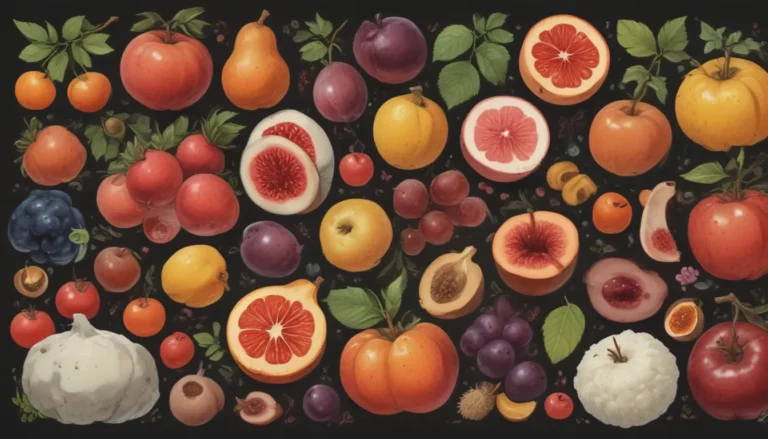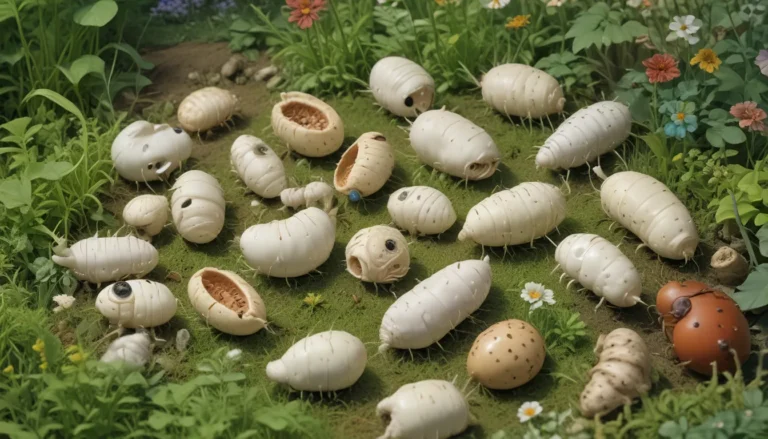Discover the Top Plant-Based Source of Vitamin D

Have you ever been advised to soak up some sunshine for your daily dose of vitamin D? This essential nutrient, also known as the sunshine vitamin, can indeed be synthesized by the skin when exposed to sunlight. However, if you’re looking to boost your intake of vitamin D through your diet, there are plant-based sources you can explore – including one that you can cultivate right at home.
In this comprehensive guide, we’ll delve into the world of vitamin D, exploring its functions in the body, its significance for our health, and how you can incorporate more of it into your daily routine. So, grab a cup of tea and let’s uncover the secrets of this vital nutrient.
What You’ll Learn
Here’s a sneak peek of what we’ll cover in this article:
- The ABCs of Vitamin D: What It Is and How It Works
- Why Your Body Needs Vitamin D
- Top Food Sources of Vitamin D
The ABCs of Vitamin D: What It Is and How It Works
Vitamin D belongs to the family of fat-soluble vitamins, alongside A, E, and K. Known scientifically as calciferol, this nutrient is stored in an inactive form in fat cells until the body requires it. When the need arises, it is released from fat cells and converted into calcidiol in the liver, which is the main circulating form of the vitamin.
Through a series of conversions catalyzed by parathyroid hormone, calcidiol is transformed into calcitriol – the active form of vitamin D that is utilized by organs throughout the body. This transformation process ensures that the nutrient is ready for various crucial functions in the body.
For healthy individuals aged one to seventy years, the recommended daily allowance is 15 micrograms or 600 IU. Once converted into its active form, vitamin D plays a crucial role in calcium absorption, bone development, inflammation reduction, cell growth, and glucose metabolism – offering a myriad of benefits for overall health and well-being.
Why Your Body Needs Vitamin D
One of the primary functions of vitamin D is to support bone health and strength. Together with calcium, this nutrient plays a vital role in increasing bone mineral density, thus helping to prevent conditions like osteoporosis and reduce the risk of fractures.
Additionally, vitamin D exhibits anti-inflammatory properties that have sparked interest in its potential role in cancer prevention. While studies have shown mixed results, ongoing research continues to explore the link between vitamin D intake and cancer risk reduction.
Similarly, the vitamin’s involvement in glucose metabolism has led to investigations into its impact on type 2 diabetes. Although no definitive connection has been established, maintaining adequate levels of vitamin D may offer some benefits by contributing to lower blood pressure and reducing the risk of cardiovascular disease.
Top Plant-Based Sources of Vitamin D
If you’re looking to incorporate more vitamin D into your diet, here are some of the top plant-based sources to explore:
1. Fatty Fish
Fatty fishes like salmon, mackerel, and tuna are excellent sources of vitamin D. Including these fish in your diet can help boost your intake of this essential nutrient.
2. Meats
Certain cuts of meat, such as liver and beef, contain vitamin D. Incorporating lean meats into your meals can contribute to your daily requirement.
3. Egg Yolks
Egg yolks are a rich source of vitamin D. Including eggs in your diet, whether boiled, scrambled, or poached, can provide you with a dose of this vital nutrient.
4. Fortified Foods
Many processed foods are fortified with vitamin D to enhance dietary intake. Look for fortified milk, dairy-free milk alternatives, breakfast cereals, and juices to complement your diet.
5. Mushrooms
Mushrooms are a unique plant-based source of vitamin D that you can grow at home. When exposed to UV light, mushrooms synthesize vitamin D, making them a valuable addition to your diet.
Mycologist Paul Stamets recommends exposing mushrooms to sunlight to boost their vitamin D content. By growing your own mushrooms or incorporating them into your daily meals, you can increase your intake of this essential nutrient while enjoying the health benefits it offers.
Conclusion: Let Your Garden Shine With Vitamin D
As we navigate through life, taking care of our health and well-being is essential. By exploring the diverse sources of vitamin D, both in nature and through conscious food choices, we can ensure that our bodies receive adequate nourishment to thrive.
Whether you choose to indulge in some fatty fish, savor a delicious egg dish, or cultivate your own sun-kissed mushrooms, incorporating vitamin D-rich foods into your diet can be a delightful journey of discovery and nourishment. So, let your garden shine with the goodness of vitamin D, and bask in the health benefits it brings.
Have you explored plant-based sources of vitamin D in your diet? Share your experiences and insights in the comments below. Let’s inspire each other to embrace the power of nutritious foods and cultivate a healthier, happier lifestyle.





